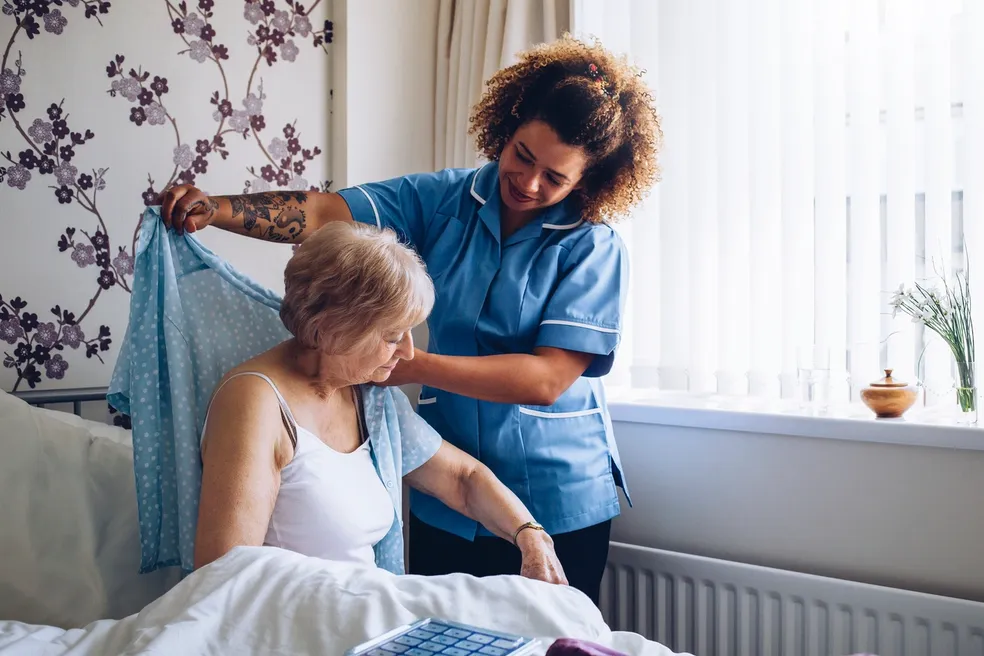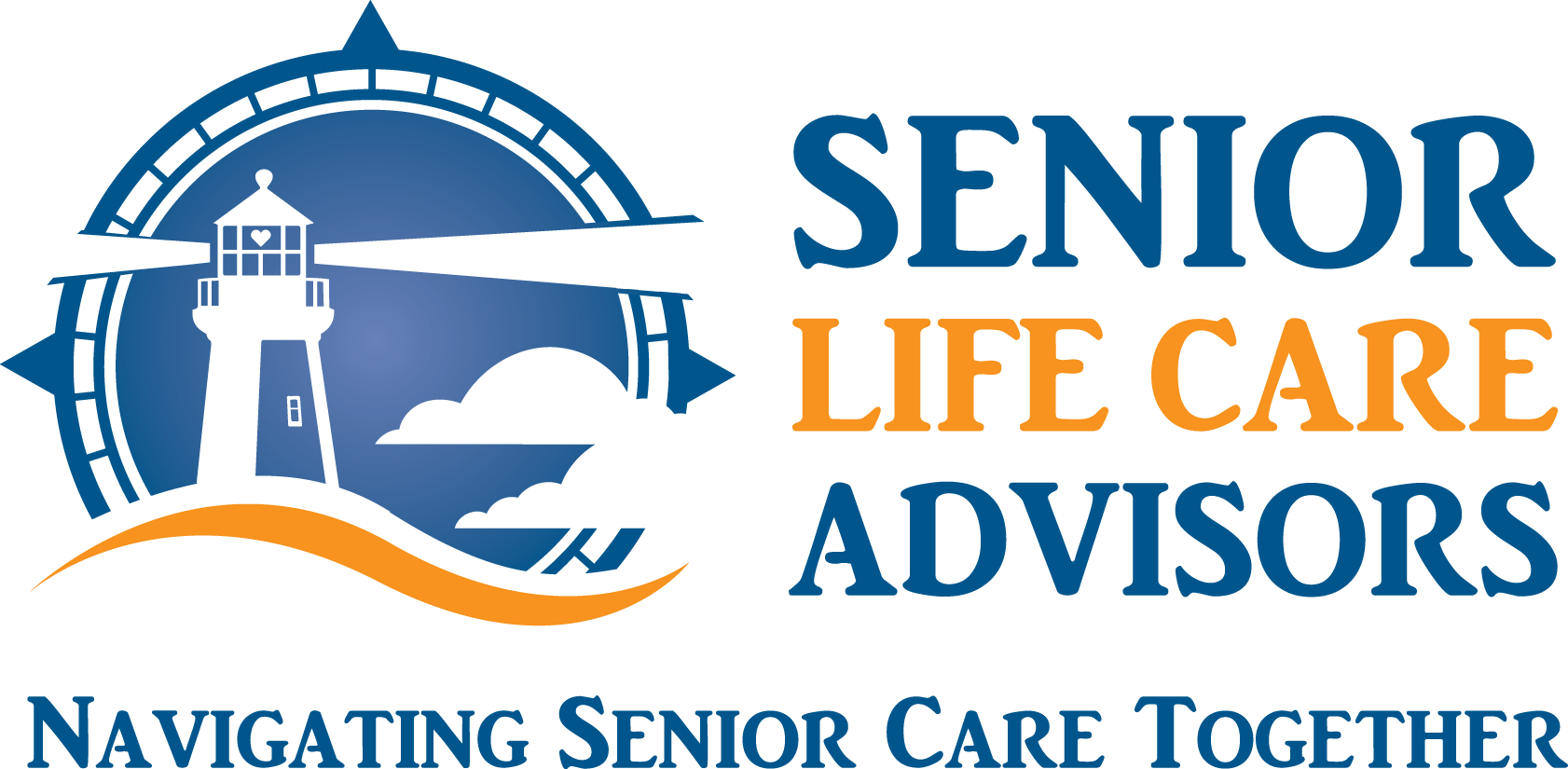
What is Skilled Nursing?
Skilled nursing, also known as skilled nursing homes or skilled nursing facilities (SNFs), refer to licensed healthcare facilities that provide comprehensive medical care, rehabilitation services, and 24/7 nursing supervision to individuals with complex medical conditions. These facilities have a team of healthcare professionals, including medical directors, registered nurses, licensed practical nurses, therapists, and other skilled caregivers who are trained to deliver specialized care.

Expert Care for Complex Needs
Comprehensive medical care, therapy, and 24/7 nursing in skilled nursing facilities.

Specialized Medical Supervision
Licensed healthcare facilities with a dedicated team for complex medical conditions.

Care for Complex Cases
Healthcare professionals providing specialized medical care and rehabilitation services in skilled nursing homes.
Frequently Asked Questions
on Assisted Living
Considering skilled nursing is appropriate when individuals have complex medical conditions that require specialized care, 24/7 nursing supervision, and intensive rehabilitation. Here are some examples of when considering skilled nursing may be necessary:
- Medical Management: Skilled nursing is suitable when individuals have complex medical needs that cannot be adequately addressed at home or in a less intensive care setting. This includes conditions such as advanced stages of chronic illnesses, severe cardiovascular or respiratory disorders, or complex medication regimens requiring close monitoring and administration by skilled nursing professionals.
- Post-Hospitalization Care: Skilled nursing becomes essential when individuals require extensive rehabilitation and medical care following a hospital stay. This includes individuals recovering from surgeries, stroke, heart attack, or other acute medical conditions that necessitate ongoing monitoring, wound care, physical therapy, and specialized interventions to regain function and independence.
- Chronic Illness Management: Individuals with chronic illnesses such as Parkinson's disease, multiple sclerosis, or advanced diabetes may benefit from skilled nursing. Skilled nursing facilities can provide the necessary medical expertise, symptom management, and ongoing support to help individuals manage their conditions effectively and maintain their quality of life.
- Rehabilitation Services: Skilled nursing is appropriate when individuals require intensive rehabilitation services, including physical, occupational, or speech therapy. This includes individuals recovering from orthopedic injuries, neurological conditions, or those needing help with mobility, activities of daily living (ADLs), or relearning skills impaired by an illness or injury.
- Safety Concerns and Fall Risk: If individuals have a high risk of falls or safety concerns due to mobility limitations, cognitive impairments, or unstable medical conditions, skilled nursing can provide a secure environment with 24/7 nursing supervision to prevent accidents, ensure immediate medical attention, and manage emergencies effectively.
- Caregiver Support and Respite: Skilled nursing can be considered when family caregivers experience burnout, lack the necessary skills or resources to provide specialized care, or need respite from caregiving responsibilities. Skilled nursing facilities offer professional support, relief for caregivers, and a safe environment for their loved ones to receive comprehensive care.
- Palliative or End-of-Life Care: Skilled nursing plays a crucial role in providing palliative or end-of-life care for individuals with terminal illnesses. These facilities have trained staff who can provide pain management, symptom control, emotional support, and specialized services to ensure comfort and dignity during the final stages of life.
The decision to consider skilled nursing depends on individual circumstances, medical needs, and available support systems. Consulting with a Senior Life Care Advisor can provide personalized guidance and help you make an informed decision that is tailored to your desired location and specific needs.
The cost of skilled nursing can vary depending on factors such as location, level of care required, amenities offered, and the specific skilled nursing facility chosen. Here are some key points to consider regarding the cost of skilled nursing:
- Daily or Monthly Rates: Skilled nursing facilities typically charge a daily or monthly rate for their services. The rates can range from around $200 to $800 or more per day, depending on the location and level of care needed. Monthly rates can vary from $6,000 to $24,000 or higher, depending on factors such as the facility's reputation, services provided, and geographic location.
- Level of Care: The cost of skilled nursing is influenced by the level of care required by the individual. Higher levels of care, which involve more intensive medical supervision, specialized therapies, or advanced treatment modalities, may result in higher costs. It's essential to discuss with the facility the specific care needs of the individual and inquire about any additional charges associated with specialized care.
- Accommodations: Skilled nursing facilities offer various types of accommodations, including private or semi-private rooms. The type of accommodation chosen can impact the overall cost. Private rooms generally have higher rates compared to shared rooms. It's important to inquire about the availability of different accommodation options and their associated costs when considering skilled nursing facilities.
- Additional Services: Skilled nursing facilities may have additional charges for services beyond basic care. These can include medication management, specialized therapies, medical equipment rentals, transportation, and personal care items. It's important to clarify with the facility which services are included in the base rate and which ones incur additional costs.
The cost of skilled nursing can vary significantly based on the factors mentioned above and can differ from one location to another. Consulting with a Senior Life Care Advisor can provide personalized guidance and help you make an informed decision that is tailored to your desired location and specific needs.
The cost of skilled nursing can vary depending on factors such as location, level of care required, amenities offered, and the specific skilled nursing facility chosen. It's important to note that the following information provides a general overview of the cost range and may not reflect the exact pricing in your specific area. It's advisable to contact individual skilled nursing facilities for up-to-date and accurate pricing details. Here are some key points to consider regarding the cost of skilled nursing:
- Daily or Monthly Rates: Skilled nursing facilities typically charge a daily or monthly rate for their services. The rates can range from around $200 to $800 or more per day, depending on the location and level of care needed. Monthly rates can vary from $6,000 to $24,000 or higher, depending on factors such as the facility's reputation, services provided, and geographic location.
- Level of Care: The cost of skilled nursing is influenced by the level of care required by the individual. Higher levels of care, which involve more intensive medical supervision, specialized therapies, or advanced treatment modalities, may result in higher costs. It's essential to discuss with the facility the specific care needs of the individual and inquire about any additional charges associated with specialized care.
- Accommodations: Skilled nursing facilities offer various types of accommodations, including private or semi-private rooms. The type of accommodation chosen can impact the overall cost. Private rooms generally have higher rates compared to shared rooms. It's important to inquire about the availability of different accommodation options and their associated costs when considering skilled nursing facilities.
- Additional Services: Skilled nursing facilities may have additional charges for services beyond basic care. These can include medication management, specialized therapies, medical equipment rentals, transportation, and personal care items. It's important to clarify with the facility which services are included in the base rate and which ones incur additional costs.
- Payment Sources: The cost of skilled nursing can be covered through various payment sources. These may include private funds, long-term care insurance, Medicare, Medicaid (for eligible individuals), veterans' benefits, or other forms of financial assistance. It's important to explore the coverage options available and determine the most suitable payment sources for the individual's specific situation.
- Financial Assistance: Depending on the individual's financial circumstances and eligibility, there may be options for financial assistance. This can include Medicaid programs, which vary by state and have specific eligibility criteria for skilled nursing coverage. Additionally, veterans and their spouses may be eligible for certain benefits through the U.S. Department of Veterans Affairs. It's recommended to research specific programs, consult with financial advisors, and explore eligibility for financial assistance options.
It's important to note that skilled nursing costs and payment options are specific to each facility and can vary depending on the location, and individual circumstances.
Senior Life Care Advisors can provide valuable guidance on payment options and help you navigate the financial aspects of skilled nursing. Contact us today to get started on your journey towards finding the perfect skilled nursing solution.
Skilled nursing services encompass a wide range of comprehensive care and support provided in skilled nursing facilities. While specific services may vary between facilities, here are some common services typically included with skilled nursing:
- Medical Care: Skilled nursing facilities offer 24/7 access to licensed nurses and healthcare professionals who provide ongoing medical care. This includes monitoring vital signs, administering medications, managing complex medical conditions, coordinating with physicians, and addressing immediate medical needs.
- Rehabilitation Services: Skilled nursing facilities provide various rehabilitation services to help individuals regain or improve their physical, cognitive, and functional abilities. These services may include physical therapy, occupational therapy, speech therapy, and other specialized therapies based on the individual's needs and treatment goals. Rehabilitation programs focus on improving mobility, strength, coordination, and facilitating a safe return to daily activities.
- Personalized Care Plans: Each resident in a skilled nursing facility receives an individualized care plan based on their specific medical needs, functional abilities, and personal preferences. The care plan outlines the required medical treatments, therapies, and interventions to ensure comprehensive and personalized care.
- Activities of Daily Living (ADL) Assistance: Skilled nursing facilities provide assistance with activities of daily living (ADLs) to ensure residents' personal care needs are met. This assistance may include help with bathing, dressing, grooming, toileting, mobility, and eating. Skilled caregivers offer support while promoting resident independence and maintaining their dignity.
- Medication Management: Skilled nursing facilities have trained professionals who handle medication management. They ensure that residents receive the correct medications, administer them as prescribed, and monitor any potential side effects or drug interactions. Medication management also includes timely refills, tracking medication schedules, and coordinating with physicians or pharmacists as needed.
- Nutritional Support: Skilled nursing facilities provide well-balanced meals and nutritional support tailored to meet the dietary needs of each resident. Special diets, feeding assistance, and monitoring of nutritional intake are offered as necessary. Dieticians or nutritionists may be available to provide individualized guidance based on specific health conditions or dietary restrictions.
- Social Services: Skilled nursing facilities often have social service professionals who assist residents and their families in navigating healthcare-related concerns, emotional support, and discharge planning. They provide guidance on available resources, help with care transitions, and facilitate communication between the resident, family members, and the healthcare team.
- Accommodations: Skilled nursing facilities typically offer semi-private rooms as the standard accommodation. These rooms are shared with one other resident and are equipped with essential furnishings such as beds, nightstands, dressers, and storage space. Semi-private accommodations allow for social interaction while respecting the privacy and individuality of each resident. Some facilities may offer private rooms for an additional cost, subject to availability.
- Social and Recreational Activities: Skilled nursing facilities organize social and recreational activities to promote engagement, social interaction, and mental stimulation. These activities can include group outings, exercise programs, arts and crafts, music therapy, educational programs, and opportunities for residents to participate in hobbies and personal interests.
It's important to note that while these services are commonly included with skilled nursing, some communities may offer additional optional services for an extra fee. Consulting with a Senior Life Care Advisor can provide personalized guidance and help you make an informed decision that is tailored to your desired location and specific needs.
In skilled nursing facilities, residents typically have limited personal space within their rooms due to the communal nature of the environment. While specific guidelines may vary between facilities, here is some general information on what residents can typically move into their skilled nursing apartment:
- Personal Belongings: Residents are encouraged to bring personal belongings such as clothing, bedding, towels, and toiletries to meet their daily needs and maintain their personal hygiene. These personal items contribute to their comfort and well-being.
- Essential Furniture: Skilled nursing facilities often provide basic furnishings in resident rooms, including a bed, nightstand, and dresser. However, residents may be permitted to bring small pieces of furniture such as a comfortable chair, small table, or personal storage containers to enhance their living space. It's essential to consider the available space in the room and consult with the facility regarding specific furniture guidelines.
- Assistive Devices: Residents can bring assistive devices such as walkers, canes, or wheelchairs to support their mobility and independence within the skilled nursing facility. These devices are essential for residents who require additional assistance or have specific mobility needs.
- Personal Electronics: Residents may bring personal electronic devices such as a television, radio, or laptop, if desired. These devices can provide entertainment and help residents stay connected with the outside world. It's important to ensure that any electrical devices brought into the facility meet safety requirements and do not interfere with the functioning of medical equipment or disturb other residents.
- Personal Keepsakes: Residents are encouraged to bring personal keepsakes, photographs, artwork, or cherished items that hold sentimental value. These items can help create a familiar and comforting environment, promote a sense of identity, and serve as conversation starters with caregivers and fellow residents.
It's important to note that skilled nursing facilities have limited space in resident rooms and communal areas due to safety regulations and the need to accommodate shared facilities. Additionally, it's advisable to label personal belongings with the resident's name to ensure easy identification and prevent loss or confusion. The skilled nursing facility may provide guidance on labeling procedures to help protect residents' belongings. Consulting with a Senior Life Care Advisor can provide personalized guidance and help you make an informed decision that is tailored to your desired location and specific needs.
To initiate your search for skilled nursing options, we highly recommend reaching out to your Senior Life Care Advisors today. Our experienced advisors specialize in assisting seniors and their families in finding the most suitable housing solutions, and connecting with us can greatly benefit your journey for the following reasons:
- Personalized Guidance at No Cost to You: Our advisors will provide FREE personalized guidance based on your unique needs, preferences, and budget. By understanding your specific requirements, we can narrow down your options and recommend skilled nursing communities that align with your criteria.
- Extensive Knowledge: We have comprehensive knowledge of the various skilled nursing communities in NE Wisconsin. We stay up-to-date with the latest information and can provide insights into the amenities, services, and features offered by different communities, allowing you to make an informed decision.
- Time and Effort Savings: Searching for memory care options can be time-consuming and overwhelming. By connecting with us, you can save valuable time and effort as we will do the research, gather information, and present you with suitable options, streamlining the process for you.
- Access to Resources: Our network and connections in the senior living industry enable us to access a wide range of resources and information. We can provide you with up-to-date details on availability, pricing, special offers, and any promotions that may be available, giving you an advantage in your search.
- Expert Advice: Our advisors are well-versed in the nuances of memory care. We can answer your questions, address your concerns, and offer expert advice on important aspects such as financial considerations, contracts, and community evaluations. Our goal is to ensure you have all the information you need to make an educated decision.
- Hassle-Free Tours and Visits: We can help facilitate tours and visits to the skilled nursing communities that match your preferences. By coordinating these appointments for you, we eliminate the hassle of scheduling and allow you to focus on exploring the communities firsthand.
- Advocacy and Support: Throughout the entire process, we will serve as your advocates and provide ongoing support. We are committed to helping you find the best skilled nursing option that suits your lifestyle and needs. We will be there to answer your questions, address any concerns, and guide you through the decision-making process.
By connecting with Senior Life Care Advisors, you can leverage our expertise, resources, and personalized guidance to navigate the search for skilled nursing options more efficiently and effectively. We understand that every individual and family has unique circumstances, and we are dedicated to helping you find the ideal community for your loved ones. Contact us today to get started on your journey towards finding the perfect skilled nursing solution.
Have Another Question?
Begin navigating senior care by talking with your advisor today!
Quick Contact Form shorter
By using this contact form, you confirm that you’ve read and agree to our Terms of Service and Privacy Policy. You authorize us and/or our affiliated partners to contact you, which may include automated calls or text messages. Your consent is optional and not a condition for using our services

